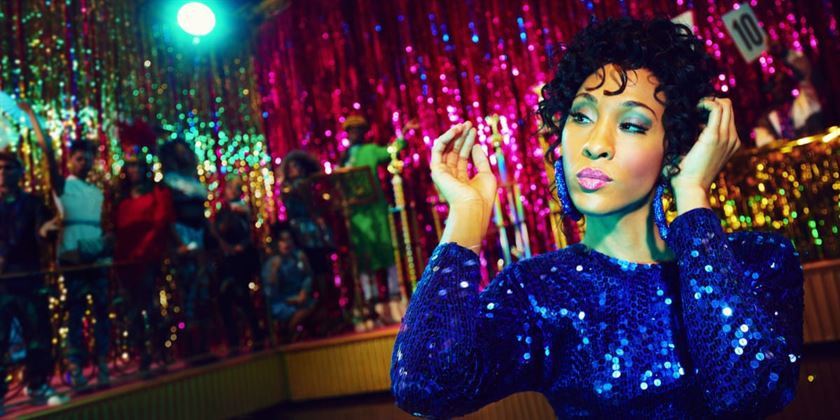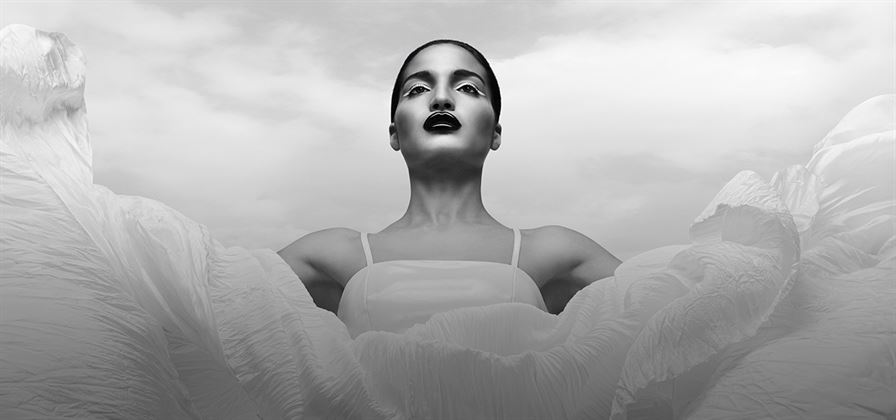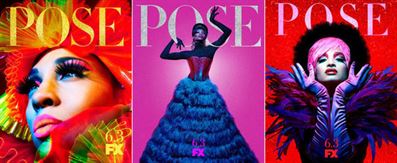“Pose,” a dance musical series with two seasons streaming on Netflix, is the perfect show to watch in honor of Pride month and the growing Black Lives Matter movement.
A show that revolves around Black and Latinx gay, transgender and gender non-conforming characters has become one of the most highly anticipated shows.
“Pose” is currently making television history with its diverse casting, exploration of the underground subculture of house-ballroom and what it means to be part of the LGBTQ+ community during the 1980s AIDS epidemic.
“Pose” balances the realistic portrayal of obstacles the community faces with humor and strength from the characters. Creators Ryan Murphy and Brad Falchuk, both known for their previous work as the co-creators of “Glee,” and creator Steven Canals brought one of the most invisible communities of our society to the forefront of television.

Blanca Evangelista, played by MJ Rodriguez, is the ultimate mother figure on “Pose.”
Photo courtesy of FX Network
Canals was inspired by one of the few films that documented ballroom culture during the 1980s, “Paris is Burning,” directed by Jennie Livingston. Livingston was asked to be a consulting producer for the show, which reflects the issues raised by the documentary, such as poverty, violence, transphobia, sexism, racism and AIDS.
“Pose” centers around “Houses” that serve as substitutes for family. A “House” consists of mother or father figures that care for their “children,” who are often homeless LGBTQ+ teenagers. The children and the mother or father figure “walk” and compete in “balls,” critiquing their appearances, costumes, attitude or “vogueing” skills to be recognized by the community.
These competitions demonstrate how strongly the media demands individuals to look and act in a particular way. From categories like “Vogueing,” a dance created by ballroom culture imitating poses from magazines, to “Realness,” which demonstrates how well someone blends into a cis-heterosexual crowd, the media has ultimately influenced ballroom culture as a whole.
Blanca Rodriguez-Evangelista, played by MJ Rodriguez, leaves House of Abundance and her mother, Elektra (Dominique Jackson), to start her own House. Blanca recruits Angel (Indya Moore), Damon (Ryan Jamaal Swain) and Esteban “Lil Papi” (Angel Bismark Curiel) to form House of Evangelista and becomes a mother herself. All of the children are portrayed with well-explored individual hardships and accomplishments, making mistakes and repairing them with the help of their elders.

Indya Moore plays Angel Evangelista, a kindhearted trans woman, trying to make a name for herself by becoming independent.
Photo courtesy of FX Network
Blanca is ultimately the beating heart of the show. She is always alongside another character facing hardship, even if she is struggling immensely with difficulties of her own. Blanca is consistently kind throughout the show and strives to demonstrate true empathy and guidance to everyone, even to those who have wronged her for the sake of being a good example for her children. She is the ultimate mother figure on television.
Seeing Blanca at the head of the table with her children, even alongside her “enemies,” evokes strong, tear-jerking emotions of unity, love and community. It gives a similar feel to group hug moments in sitcoms such as “Full House.”
“Pose” excellently explores intersectional identity while still conveying universal feelings everyone can relate to. The characters have fierce and powerful personalities. When a character experiences dark moments, there is always the community-chosen family that supports them through it.
All of the characters have dreams and desires, but also make many mistakes in finding their paths through life. Everyone can recover from those mistakes and everyone can make something of themselves.
Working hard to succeed in life is hard to believe in a world that is systemically against marginalized people. Seeing these characters overcome adversity they never should have faced in the first place gives audiences the strength to keep going, to keep fighting and to keep dreaming in a world that is built against the most marginalized of people.
“Pose” is more than a show with groundbreaking representation. The Netflix show celebrates life, overcoming adversity and urges to keep fighting against the very systems that created tragic adversity in the first place.



